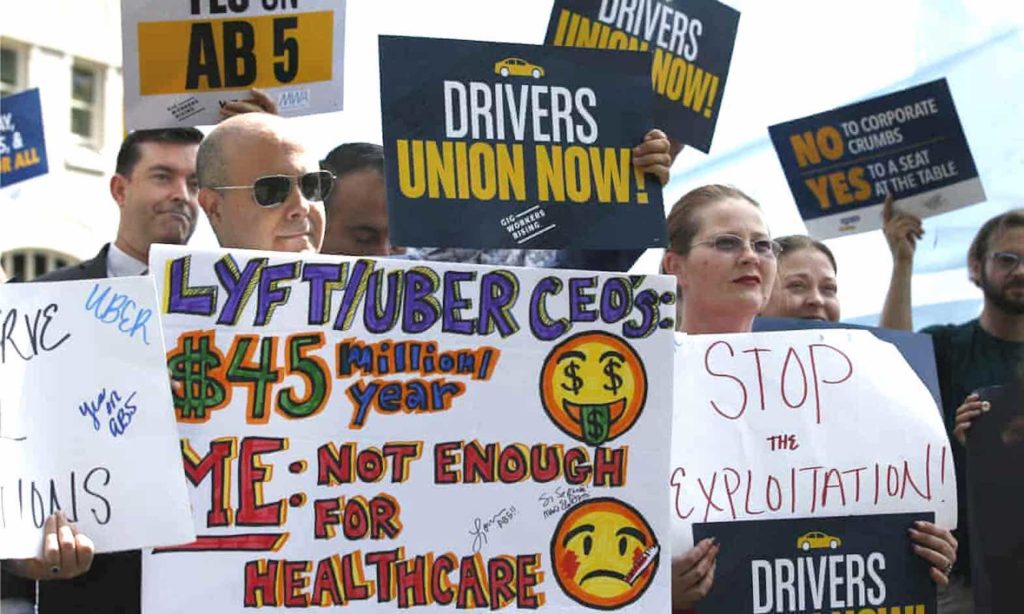California workers’ rights and the coronavirus, part 2

AP FILE PHOTO
Q: I work for a company that provides 40 hours of paid sick leave. This is about 5 days of work. If I ever need to take leave due to COVID-19, 5 days may not be enough. What are my options?
A: As of this writing, the recorded cases of COVID-19 is approaching 11,000 in the United States (and the cases in California is nearing 700). State and local governments have enacted various regulations to contain the tide of infection. For example, San Francisco currently has a shelter-in-place law. In Los Angeles, bar and restaurants must close for dine-in customers and all persons 65 year or older must stay home. Schools have also closed down and many workers have been sent home to work from home or on a work furlough (i.e., no work, no pay). How long all these measures must continue is uncertain.
For employees who have been sent home on a work furlough (provided they are not sick, quarantined or caring for someone who is sick or quarantined), one option is to avail of unemployment benefits. Such employees can contact the Employment Development Department to inquire about eligibility requirements.
However, if employees have tested positive for COVID-19 or have been exposed to it and are now quarantined, they may be able to file a short-term Disability Insurance claim with the state of California.
If employees are unable to work because they have to care for a family member who is sick, such employees may be eligible to receive paid family leave from the state.
If paid leave is not available or has run out, and if the leave or absence is due to the employees’ illness or the illness of a family member, then the California Family Rights Act (CFRA) and the Family and Medical Leave Act (FMLA) may provide qualified employees with up to 12 weeks of unpaid, job-protected leave per year.
Additionally, this week, the President has signed into law the “Families First Coronavirus Response Act” which expands the FMLA and mandates paid sick leave for eligible employees. Some of the more important points to note regarding the new law are the following:
• Effective April 2, 2020 and ending December 31, 2020, the FMLA is temporarily expanded to cover all private-sector companies with fewer than 500 employees. Employees are eligible if they have been employed for at least 30 calendar days.
Covered employers must provide employees paid sick time to the extent an employee is unable to work (or telework) due to a need for leave because:
- The employee is subject to a quarantine or isolation order related to COVID-19.
- The employee has been advised by a health care provider to self-quarantine due to concerns related to COVID-19.
- The employee is experiencing symptoms of COVID-19 and seeking a medical diagnosis.
- The employee is caring for an individual who is subject to an order of quarantine
- The employee is caring for a minor child whose school or care provider has been closed due to COVID-19 precautions.
- The first 10 days of this expanded FMLA leave will be unpaid, although employees can use paid time off or sick time to cover some, or all of the initial unpaid period. After 10 days, the employer will be obligated to pay full-time employees 2/3 of their regular rate of pay for the employee’s regular weekly hours for up to 10 weeks. Part-time employees or those with irregular schedules will be paid at 2/3 of their regular rate for the average number of hours worked over the prior 6 months of employment. Payments will be capped at $200 per day or $10,000 in the aggregate.
- Employers with fewer than 500 employees are required to provide full-time employees with 80 hours of paid sick time. This paid sick time is in addition to any paid sick leave already provided by the employer
- Private insurance plans are required to provide free COVID-19 testing
The Law Offices of C. Joe Sayas, Jr. welcomes inquiries about this topic. All inquiries are confidential and at no-cost. You can contact the office at (818) 291-0088 or visit www.joesayaslaw.com. [C. Joe Sayas, Jr., Esq. is an experienced trial attorney who has successfully recovered wages and other monetary damages for thousands of employees and consumers. He was named Top Labor & Employment Attorney in California by the Daily Journal, consistently selected as Super Lawyer by the Los Angeles Magazine, and is a Presidential Awardee for Outstanding Filipino Overseas.]

